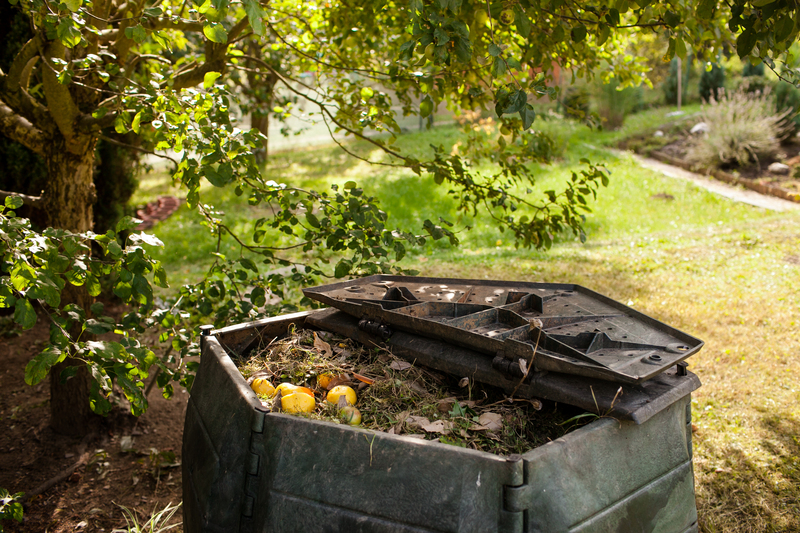Why Waste Clearance is Vital for Urban Living
Urban areas are the epicenters of human activity, commerce, and culture. As cities continue to grow at unprecedented rates, the management and disposal of waste become increasingly crucial. Proper waste clearance is not just about keeping the streets clean. It plays a vital role in public health, environmental protection, economic development, and the overall quality of urban life. In this comprehensive article, we'll explore the importance of waste clearance in urban areas, highlight key challenges, and present solutions for sustainable urban waste management.
The Escalating Challenge of Urban Waste
The world's urban population has exploded in recent decades, with more than half of humanity now residing in cities. This trend, driven by economic opportunity and improved living standards, brings with it a dramatic increase in municipal solid waste (MSW). According to the World Bank, global waste generation is expected to soar to 3.40 billion tons by 2050, up from 2.01 billion tons in 2016.
What Constitutes Urban Waste?
- Household Waste: Everyday discards from homes such as food scraps, packaging, and old furniture
- Commercial Waste: Rubbish produced by businesses, restaurants, and offices
- Construction and Demolition Debris: Materials from building, renovation, and demolition activities
- Hazardous Waste: Batteries, chemicals, e-waste, medical waste, and more
- Street Litter: Waste accumulated on public roads, parks, and communal spaces
Each category presents unique challenges for collection, transport, recycling, and disposal in densely populated environments.

Why Waste Clearance is Essential for Urban Well-being
1. Protecting Public Health
The most immediate reason waste clearance is critical is its direct impact on city dwellers' health and safety. Uncollected garbage attracts pests like rats, flies, and cockroaches, which can spread diseases such as leptospirosis, cholera, and salmonella. Decaying organic matter also creates unsanitary conditions, pollutes groundwater, and may release toxic gases.
- Prevention of Diseases: Efficient waste management reduces health risks by removing breeding grounds for harmful organisms.
- Cleaner Air and Water: Regular urban waste removal prevents pollution of natural resources essential for city life.
2. Environmental Sustainability
Improperly handled waste is a major threat to the environment. Landfills emit methane, a potent greenhouse gas. Plastic waste clogs waterways and endangers marine life. Toxic substances leach into soil and water, much of which could be recycled or reused instead.
Key environmental benefits of diligent waste clearance:- Reduction in Landfill Use: Sorting and recycling waste decreases the volume sent to landfill sites.
- Resource Conservation: Recovering materials from waste preserves natural resources and reduces the demand for raw extraction.
- Climate Change Mitigation: Organised waste clearance systems help cut greenhouse gas emissions.
3. Enhancing Urban Aesthetics and Living Standards
No one wants to live in a city where the streets are lined with garbage heaps. A clean environment attracts investment, tourism, and improves mental well-being. Effective rubbish removal in urban areas is thus key to maintaining an appealing cityscape and high quality of life.
- Boosts Urban Property Values
- Supports Tourism and Local Business
- Encourages Civic Pride and Social Responsibility
4. Prevention of Urban Flooding
Improper waste disposal often contributes to blocked sewers and storm drains. This increases the risk of floods during heavy rainfall. In cities with intense rainfall events, such as Mumbai or Jakarta, waste clearance can be the difference between normalcy and disaster.
- Maintained Drainage Systems: Regular debris removal keeps water channels clear.
- Reduced Infrastructure Damage: Preventing blockages limits the destruction caused by flooding to roads, homes, and public transport systems.
5. Economic Growth and Job Creation
The waste clearance industry is a significant source of employment in urban centers. From collection crews and recycling workers to engineers and policy makers, properly managed waste streams create jobs. Furthermore, cities known for cleanliness attract more businesses and skilled workers.
- Supports Green Jobs: Emphasizing recycling and composting opens new, environmentally-friendly job markets.
- Reduces Business Costs: Efficient clearance lowers expenses related to pest control, cleaning, and healthcare.
Major Urban Waste Management Challenges
Despite its importance, waste removal in cities is fraught with obstacles:
Population Density
Densely packed environments leave minimal space for waste processing and storage. High-rise buildings complicate collection routes and require innovative solutions such as underground bins or timed pickups.
Waste Segregation Issues
Most cities struggle with insufficient sorting of waste at the source. Mixing recyclables and hazardous materials increases costs and reduces the effectiveness of recycling programmes.
Logistics and Traffic
Crowded streets and frequent congestion make it difficult for waste collection trucks to operate efficiently, causing delays and missed pickups.
Funding and Infrastructure Gaps
- Lack of investment in modern vehicles and processing facilities
- Dependence on informal labor with limited resources
- Inadequate public awareness campaigns
Illegal Dumping and Littering
Poor enforcement of regulations can result in open dumping, which exacerbates environmental and public health issues.
Sustainable Solutions for Urban Waste Clearance
1. Implementing Integrated Waste Management Systems
Integrated systems utilize a combination of methods--reduction, reuse, recycling, composting, energy recovery, and safe disposal. Cities like Tokyo and Singapore have shown that investing in such systems yields cleaner, greener cities.
2. Source Separation and Recycling Initiatives
- Educating Citizens: Outreach programs encourage people to sort their waste.
- Curbside Recycling: Easy access to recycling bins increases participation.
- Composting: Turning organic waste into fertilizer reduces the load on landfills.
3. Investment in Technology
Innovation is making waste clearance more effective:
- Smart Bins: Equipped with sensors to signal when they need emptying
- Automated Trucks: Improve efficiency and reduce labor risks
- Data-Driven Collection Routes: Use real-time information to optimize schedules
4. Strengthening Policy and Regulation
Robust laws that mandate waste segregation, penalize illegal dumping, and encourage recycling are essential. Cities should also promote extended producer responsibility, making manufacturers accountable for the end-of-life impact of their products.
5. Community Engagement and Incentives
- Reward schemes for households and businesses that sort their waste
- Partnerships with NGOs to engage neighborhoods in cleanup drives

The Future of Waste Clearance in Urban Environments
As urbanization accelerates, waste management strategies must evolve:
- Zero-waste movements aiming to eliminate landfill dependency within decades
- Circular economy principles focusing on keeping materials in use for as long as possible
- Green infrastructure such as eco-parks for urban composting and recycling
Combatting urban waste will require a blend of technology, policy innovation, community action, and individual responsibility. Cities that prioritize efficient waste clearance not only safeguard health and the environment, but also create places where people are proud to live, work, and visit.
Conclusion: Waste Clearance is Key to Thriving Cities
To summarize, waste clearance is not a luxury--it's an essential backbone of urban civilization. It ensures clean, healthy living environments, protects nature, supports economies, prevents disasters, and fosters a sense of urban pride. As cities expand, future-proofing our urban waste management systems is a collective imperative. By adopting forward-thinking policies and embracing innovative solutions, urban dwellers and leaders can guarantee that their cities remain vibrant, resilient, and sustainable for generations to come.
FAQ: Waste Clearance in Urban Living
- Is waste clearance only about garbage collection?
No. It includes everything from waste prevention and segregation to recycling, composting, and safe disposal of hazardous materials. - How does improper waste removal affect public health?
Improperly managed waste breeds pests and spreads diseases, contaminates water supplies, and creates air pollution. - What can individuals do?
Sort waste at home, reuse items, compost organics, and actively participate in community waste reduction initiatives.
By understanding why waste clearance is vital for urban living, individuals, businesses, and governments can together shape cities that are not just bigger but better, cleaner, and more sustainable for all.